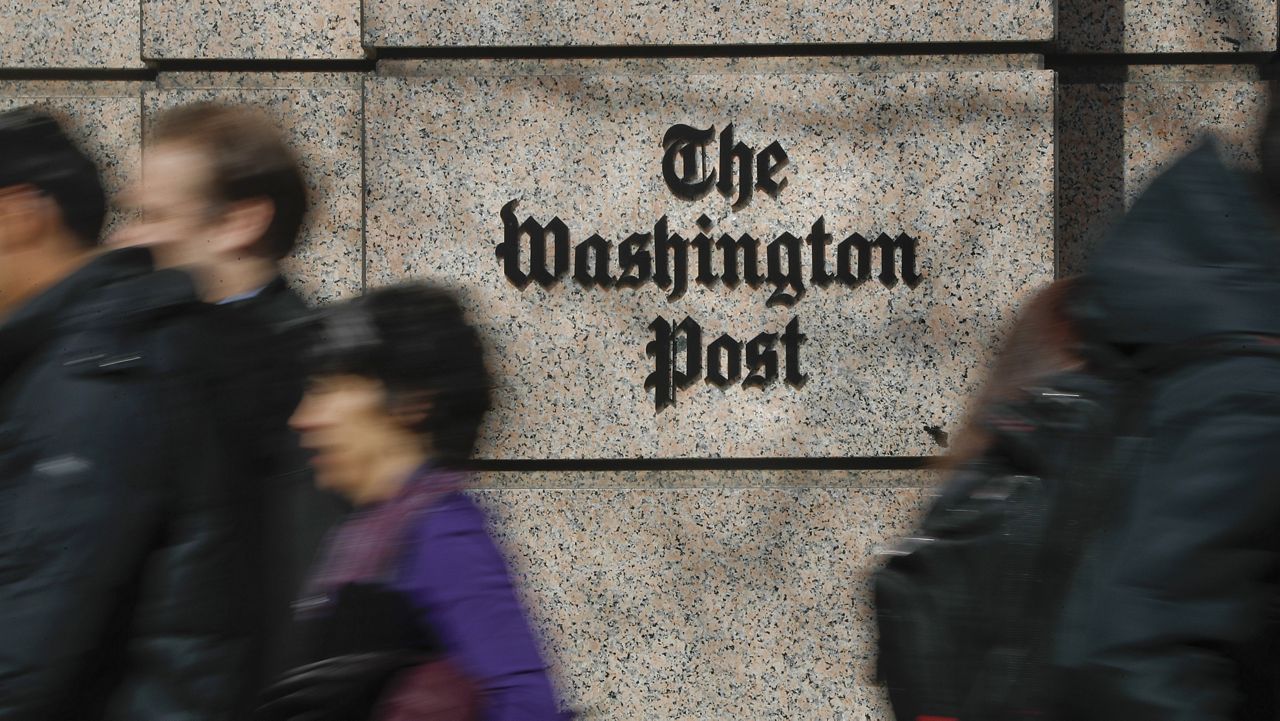The publisher and CEO of The Washington Post said Friday that the paper will not endorse a presidential candidate this year or in any future presidential election.
“We are returning to our roots of not endorsing presidential candidates,” William Lewis said in a statement posted in the Opinion section of the paper.
The third-largest newspaper in the country, the Washington Post has endorsed presidential candidates every election year since 1976 when it supported Jimmy Carter. In 2020, it endorsed Democrats Joe Biden and Kamala Harris.
Lewis cited an Editorial Board article from 1960 that said, “The Washington Post has not ‘endorsed’ either candidate in the presidential campaign. That is in our tradition and accords with our action in five of the last six elections.”
While the paper endorsed Dwight Eisenhower in 1952, it abstained from an endorsement in 1960, when Democratic Sen. John F. Kennedy was running against Republican Vice President Richard Nixon. Kennedy won that election by 118,000 votes, according to the Library of Congress.
On Friday, Lewis highlighted two points the Post’s Editorial Board made at the time.
“The election of 1960 is certainly as important as any held in this century,” the Board wrote, expressing a sentiment with clear resonance in 2024. “This newspaper is in no sense noncommittal about the challenges that face the country. As our readers will be aware, we have attempted to make clear in editorials our conviction that most of the time one of the two candidates has shown a deeper understanding of the issues and a larger capacity for leadership.”
The 1960 editorial concludes, “We nevertheless adhere to our tradition of non-endorsement in this presidential election.”
Lewis also pointed to another election-year Editorial Board piece that ran in the paper in 1972, when Nixon ran again, questioning the newspaper’s role in endorsing a president.
“We are, as our masthead proclaims, an independent newspaper, and that with one exception (our support of President Eisenhower in 1952) it has not been our tradition to bestow formal endorsement upon presidential candidates. We can think of no reason to depart from that tradition this year.”
According to the outlet, citing sources familiar, an endorsement of Harris was drafted but was not published. Those sources also said that the owner of the paper, Jeff Bezos, was the one to make the decision not to publish.
Marty Baron, the paper's former executive editor, called the move "cowardice, with democracy as its casualty."
"Disturbing spinelessness at an institution famed for courage," Baron, who led the paper from 2013 until his retirement in 2021, wrote on social media.
The Washington Post decision comes three days after the Los Angeles Times also decided against endorsing a presidential candidate this year, prompting the paper’s editorials editor to resign. The Times had a long history of endorsing GOP nominees from 1881 through 1972, but stopped endorsing candidates from 1976 through 2004. It resumed endorsements in 2008, backing Democratic nominees every year through 2020.
Facing reader backlash and subscription cancelations, Times owner Patrick Soon-Shiong explained the paper’s rationale on X Wednesday, saying, “The Editorial Board was provided the opportunity to draft a factual analysis of all the positive and negative policies by each candidate during their tenures at the White House and how these polices affected the nation.”
He said the Board was asked to provide their understanding of each candidate's policies and their potential effects on the nation over the next four years if elected. That information was to be presented to readers in a clear and non-partisan way, but the Editorial Board decided against that plan.
The Washington Post's announcement comes the same day that the Philadelphia Inquirer endorsed Harris for president. The New York Times has also endorsed Harris.



